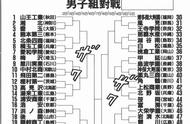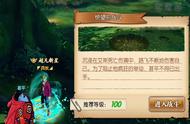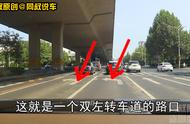中考即将来临,小编为你全力奉献中考复习系列,希望对您有所帮助。

1时态(8)一般现在时 ----v原形/单三------often/usually/every year
一般过去时-----v 过去式-----yesterday/ago。。
一般将来时---will/shall v原形/is/are/am going to v原---tomorrow/in 段时间
现在完成时-----has/have v 原形 -----ever/never/since/for/before/so far//
现在进行时-----is/are/am doing -------now/listen/look
过去进行时-----was/were doing ------ at 5 yesterday/
过去将来时------would v原形//was/were going to v 原形---------
重点现在完成时;主将从现:虚拟语气;主句与从句的时态的对应;by time ---
2.many / few/little / much
The reporters asked the man__questions, but he said___words.
A many,few
B.much, a little
C.a lot of, a few
D.some, a little
little,a little ,few, a few
a lot of /some /any
so many /so much/ too many/ too much
可数名词/不可数名词
1._____about Wen Chuan earthquake keeps everyone in China in deep sorrow.
A.News
B. Information
C. Messages
D. Advice
2.British people eat____ a lot, and they are usually cooked in different ways.
A.chicken
B.beef
C.fish
D.potatoes
3. 复合形容词 a ten-day holiday /three years old//three-year--old
4. 1)祈使句 and 简单句,祈使句 or 简单句
例如:Hold on your dreams, ____one day they may just come true.
A.and
B.but
C.so
D.or
2)祈使句 反问 Let's...,shall we?
3)Let us ...,will you?
4)祈使句,will you?
拓展:1祈使句的类型及否定形式
a,do型 /Don't v 原形
例如:Open the door。
Don't open the door
b,be 型 / Don't be...
例如: Be quiet!
Don't be hurry
例如:Let型 /Let somebody not do something
例如:Let him do it。
Let somebody not do something
Let him not do it
祈使句的回答1)建议---Good idea
2)警告 -----Sorry,I won't do it again
5、情态动词
can/may/must/need/would/should/might/could 否定
mustn't needn't 问答 -- Must/May/can I ,,,,?---No, ------
推测 must /can/could/may/might /can't be
例如:Must I do the dishes after dinner , Mum?
____. Review your lessons, please.
A.Yes, you must
B.Yes, you should
C.No, you mustn’t
D.No, you don’t have to
情态动词与被动结合
6、情景交际:
a,安慰----
b,赞美-----
c,祝福-----
d,祝福旅行愉快-----
e,打电话------Who is that speaking?
//Is that Tom speaking
//This is Tom speaking!
//Hold on !
F,购物 ---What can I do for you?
/May/Can I do for you?- -----I would like ...
//I am looking for
G,介绍 ------介绍第三者 This is
H,问天气
I,问日期 What is the date?
问 星期 What day is it today ?
问点钟 What time is it?/What is the time?
问时间 when
祈使句的否定(带着警告,不满等语气)---Sorry ,I won't do it again
May I....?---No ,You may not//No ,you mustn't
Must I...?No,you needn't
J,建议 ------Good idea/That sounds great!
K,问看法What do you think of ...?/How do you like…?----Very much/Very well
L,Would you like?----Yes, please。/A little/few please。//No ,thanks
M,Would you like to ?
-----Yes ,I would like to…
/No,I would like to, but…
N,问天气。
O,将做-----Good luck!
P,已做成-----Congratulations!///Well done!
Q,未做出/成----I am sorry hear that
//what a pity
S,问路-----Excuse me/…
T,看病----
H,What does Mary look like?
L,What is Mary like?
N,约会 -------That ’s a deal
O,做判断-----I think so
//I think not
//I am afraid so
//I am afraid not/
//I hope so
//I hope not
P,问介意Would you mind...?
---Of course not
You had better not
P,就餐 Help yourself/yourselves ?
//Would you like...?
7无声交际(大写)
8.表“另一个”。
another 没有范围。另一个、再一个
the other 两者当中的另一个
the others 有指定范围的剩余的
others 无指定范围的剩余的
9.so和 such的区别。
1)so---how感叹句:
e.g.The boy is so clever. How clever the boy is!
such---what感叹句:e.g.He is such a clever boy.
What a clever boy he is!
2)so adj. n.such n.(可数或不可数都可以) adj.
3)so形容adj.such形容n.
4)so that ///so …that////such…that
10.问长相、人品。
How does he look? 问该人长相
What does he look like? 问该人长相
What is he like? 问该人怎样
What does he like? 问该人喜欢什么
11.while的具体用法和注意事项。
1)在…期间内:领导时间状语从句(复合句),用持续性动词
e.g.I have been away from Shanghai while he was in Beijing.
2)而:用于并列句,可作对比、强调“同时”,前后时态一致
e.g.I was doing my homework while he was playing computer.
*when
as
12.used的用法
过去常做:used to(不定式)do
习惯于做某事:be used to(prep.)doing
被用来…:be used to(不定式)do/ for doing
17.表示时期
in one’s fifties 在某人50几岁时
in the 1980s 在80年代
18.表示被动: be(根据时态而变) done **只有及物动词有被动式。
e.g.The question was raised by him.
情态动词 be pp
19.表最后
in the end除了表最后还可表示对未来的预计
at last多指经过主观努力
finally表次序最后,不含感情色彩较客观
eventually侧重于动作或行为的结果,也表最后
20.表示“也”
句末:...as well./...,too.
句中:also/either/as well as(和…一样为/连词,一起)
21.特殊动词
1)加to do
agree/fail/hope/wish/manage/plan/promise/refuse/seem/want/decide/offer to do sth.
2)加doing
enjoy/finish/admit/deny/consider/practice/go/suggest/mind doing sth.
3)加to do和doing含义不同的
try to do努力做某事;try doing试着做某事;
forget/remember…to do忘记/记得去做某事;forget/remember…doing忘记/记得做过某事;
stop to do停下来去做(另一件事);stop doing停止做(眼前的事);
go on to do停下并继续去做另一件事;go on doing不停做某事;
help to do帮助做某事;cannot help doing忍不住做某事
4)加to do 和doing 含义相差不大的
Love/like/prefer/begin/start to do 一次性,doing 经常性
I like swimming,but I don't like to swim today.
22. 感叹句 What...!/How...!
23.反意疑问句否定前移 主语为第一人称时,反意疑问句跟从句一致 e.g.I don't think he is a good boy,is he?
He must be...,—— ——?
there be...,—— ——? 祈使句用Will you...? e.g.Go home now,will you?
**特例:Let’s用Shall we..?
24.表“是否”
用whether和if的宾语从句:表达效果相同
有.....or not的时候只能用whether,不能用if。
e.g.I wondered whether (or not) he would go (or not).
25.从句中的谓语(如量词,动词时态等)
1)谓语与B一致
Neither A nor B
Either A or B
Not only A but also B
Not A but B
2)谓语与A一致
A as well as B
A (together)with B
3)谓语用复数
...(both) A and B
26.本身带有否定意义的词
hardly、seldom、rarely、never、few、little
27.“的”固定搭配
1)用to:
the answer/key/reply to this question
the entrance to the building
the notes to the text
the solution to the problem
2)用for:the ticket for the film
28.不加the有特殊含义的
go to school/hospital/prison 上学、去医院、坐牢
29.some time的组合
some time 一段时间
some times 几次
sometimes 偶尔
sometime 表示某一点时间
30.不可数名词加形容词用作“可数”
a long history,a nice supper/breakfast/lunch,a great success
a good time,a happy life,a great joy,a 5-hour sleep
31.adj.加ly意义抽象化的
wide-宽广地 widely-广泛地
high-高地 highly-高度地
deep-深入地 deeply-深度地
close-亲密地 closely-接近地
31.不带to的不定式
let/make/have/hear/see sb. do
*see/hear sb do sth
see/hear sb doing sth
32.表达“我的观点”:我以为/认为/相信I think/suppose/believe...
1)需否定前移 e.g. He isn’t a student. - I don’t think he is a student.
2)主语为第一人称时,反意疑问句跟从句一致 e.g.I don't think he is a good boy,is he?
33.特殊疑问句中的不定式
除了由Why领导的特殊疑问句要用Why(not)do...?
其余的都用to do: e.g.what to do ; where to go
34.宾补后的prep.
当宾语补足语是不定式(to do)结构时,若do不可以与句子中的宾语连用时,必须加介词。
e.g.What I need is a pen to write with.
宾补是to write,宾语是pen,不能讲write a pen,因此要加介词with.
35.It代替不定式短语作形式主语时的prep.
It is adj. of/for sb. to do sth.
当上句中的adj.可用来形容sb.时,介词用of;其余用for
36.none的具体用法
1)none of 表示某范围中一个也没有
2)None 对How many/much的回答
*none//no of
37.到达的几种用法
get(vi.) to
arrive(vi.) in(大的地方)/at(小的地方)
reach(vt.)
**单独使用“到达”用arrive:e.g. I was on the way when he arrived.
get home
38.表“除了”
1)同类:
except 除了... e.g.We all went to the cinema except him.
besides 除此之外,还... e.g.What subject do you learn besides English?
2)不同类:
except for 除了...之外 e.g.The article is perfect except for a spelling mistake.
but 除了...(名词或代词、不定式) e.g.He eats nothing but fruit.
39.表“参加”
join 加入组织并成为一员 join(sb.) in sth./doing sth.
attend 出席
enter for 报名参加
take part in 参与、参加
40.宾语从句要点
1)宾语从句前后时态一致,且从句为陈述句语序
e.g.I wondered why he was late.
**某些特殊句型不需要变语序(换言之本身就是陈述句语序)
e.g.Can you tell me what’s the matter/wrong with you?
2)从句跟真理时,从句时态不变。
e.g.Mom told me that there is 365 days in a year.
3)Could翻译为“能够”的时候,表语气诚恳,不一定是过去式。
Could you tell me whether he is here or not?
41.重点的动词(时态)变形
lie-lay-lain 躺下
lay-laid-laid 下蛋
lie-lied-lied 说谎
hang-hung-hung 挂
hang-hanged-hanged 吊起
二、语法重点整理:
1.Here、there等前面不加介词:be/ go here/ there
2.by... - 到...为止
by 过去的一点时间 - 用过去完成式
e.g.He had read three books by the end of the summer holiday.
by now - 用现在完成式e.g.He has read three books by now.
3.独一无二的职业作表语、同位语、补语省略“the”
Bush is president of the USA. -作表语
Bush,president of America,is.... -作同位语
Americans elected Bush to be president. -作补语
4.as...as... e.g.He is as clever as I.
not so/as...as... e.g.He isn’t as/so clever as I.
as…as possible=as…as somebody can尽…可能
5.时间、距离、金钱不管多少都用作单数;作主语,则谓语用单数
6.far - farther(距离远)/further(程度) - farthest/furthest
7.形容词最高级加“the”,副词最高级可不加
8.过去分词作定语表被动 e.g.The boy who is called Jack...
现在分词作定语表主动 e.g.The waitress lying the table...
9.基数词 单n. adj.只能作定语,不可作表语
e.g.The two-year-old girl is called Jane.
eight years old////// two-year-old //// eight-year-old
10.need doing = need to be done 某事有待(需要)完成。
11.the police、the people始终用作复数 ( policeman/policewoman////////person)
class、family强调个体时用作复数;强调整体时用作单数
12.征求意见“你认为..怎样?”
What do you think of ...?/How do you like ...?
---------Very well/Very much
13.最高级 序数词 不定式 e.g.the first one to arrivethe 序数词 最高级 名词(单数)
eg:The Yellow River is the second longest river
one of the 最高级 名词(复数)eg: The Yellow River is one of the longestriversin China。
14.so as (not) to “为了”不能用于句首 (to、in order to可以):后面跟短语in order toso that /in order that
15.like解释“好像”时作prep.,因此不能跟句子
16.以f结尾的名词多数改v es,如knives、loaves
**特例:roofs、proofs
以o 结尾名词,其中 tomato ,potato,hero---加es;其他 s
以y结尾1)元音字母 y-------加s eg:boy-----boys toy-----toys
2)辅音字母 y---变y 为i es eg:city --------cities
17.I find/think it...句中be动词可省略:
e.g.I find/think it difficult to learn English.
=I find/think it is difficult to learn English
18.quite/very 原级
**不能与enough连用 e.g....quite big enough for me to....
a lot/a bit/much/even。。。修饰比较级
19.too...to结构中,当主句主语作从句中宾语时,介词必须省略
e.g.The bag is too heavy to carry.
三、重要词组按动词分:
1.take:take in吸收
take part in参加
take place发生
take away 收拾,整理
take out拿走
take off脱下 飞机起飞
2.go:
go off响起
go out熄灭
go over复习
go wrong出错
go on继续
go up走上前去
3.Look:
look up查寻;抬头看
look for寻找
look out注意;留神
look at看着
look after
look like
look through
4.Put:
put off延期
put up举起;挂起
put out扑灭
put on穿
put down放下
5.Give:
give in屈服
give out分发
give off散发
give up放弃
6.Set:
set up建立
set out/off出发
7.Get:
get up起来
get off下车
get on上车
get along/on(with)进展;相处
get in进入;收集
get to到达
get back返回
8.Turn:
turn into变成 turn off关掉
turn down调低 turn on打开
9.Think:
think of想到
think about考虑
think over仔细考虑
按介词分:
10.Out:
come out出版
turn out被证明是
start out开花
give out分发
make out辨认出
take out取出
set out出发
work out做出
pick out挑选出
put out扑灭
sell out售完
let out放出
look out注意;留神
point out指出
11.Down:
turn down调低
write down写下
cut down砍下
pull down推倒
12.Off:
show off炫耀
go off响起
put off延期
give off散发
take off脱下
set off出发
get off下车
turn off关掉
fall off跌落
keep off阻挡
13.On:
keen on热衷于 rely on依靠 depend on依靠 call on拜访
get on上车 hold on等一等 later on过后;后来 live on靠…维生 operate on给…动手术
14.In:
check in办理登机
fill in填(表格)
hand in上交
join in参加
get in进入;收集
15.With:
deal with处理
meet with遭遇
do with处理;处置
16.Up:
go up走上前去
grow up长大
put up举起;挂起
give up放弃
get up起床
hold up举起
set up建立
take up开始从事
wake up叫醒
二 动词短语
come up with ,
catch up with ;
keep up with ;
take off;
take away;
take care of;
take care;
be careful ;
care about ;
care for;
fall off;
fall down;
look up;
look down;
look like;
look through;
look after;
look for ;
look into;
look forward to;
look out;
look ou of;
graduate from ;
devote…to 献身于、致力于 ;
put on ;
put up;
put off;
put away;
put out;
do with;
deal with;
agree with;
agree about ;
agree on;
disagree with ;
believe that ;
believe in ;
used to;
there used to be ;
be used to v 原形
be used to ving ;
be used for ;
use up;
make used of
be surprised at;
be interested in ;
be mad at ;
make me happy ;
make him tense ;
serve as ;
aim at ;
aim to;
lead to;
be supposed to ;
send to;
send for;
send up;
turn on ;
turn off ;
turn up;
turn down;
find out;
be made of;
be made from;
be made into;
be made in;
be made up of;
be made by;
make up;
make a mistake ;
make a face;
make noise;
make an example ;
be produced
try on;
have a try;
try one's best to do something;
try doing something;
be born;
be famous for;
be famous as;
seem to be ;
give first aid;
give up,
keep/stay healthy;
be good at ;
do well in;
make contribution to,;
be afraid to ;
be afraid for;
be full of;
be filled with ;
laugh at ;
think of;
think about;
think over


























